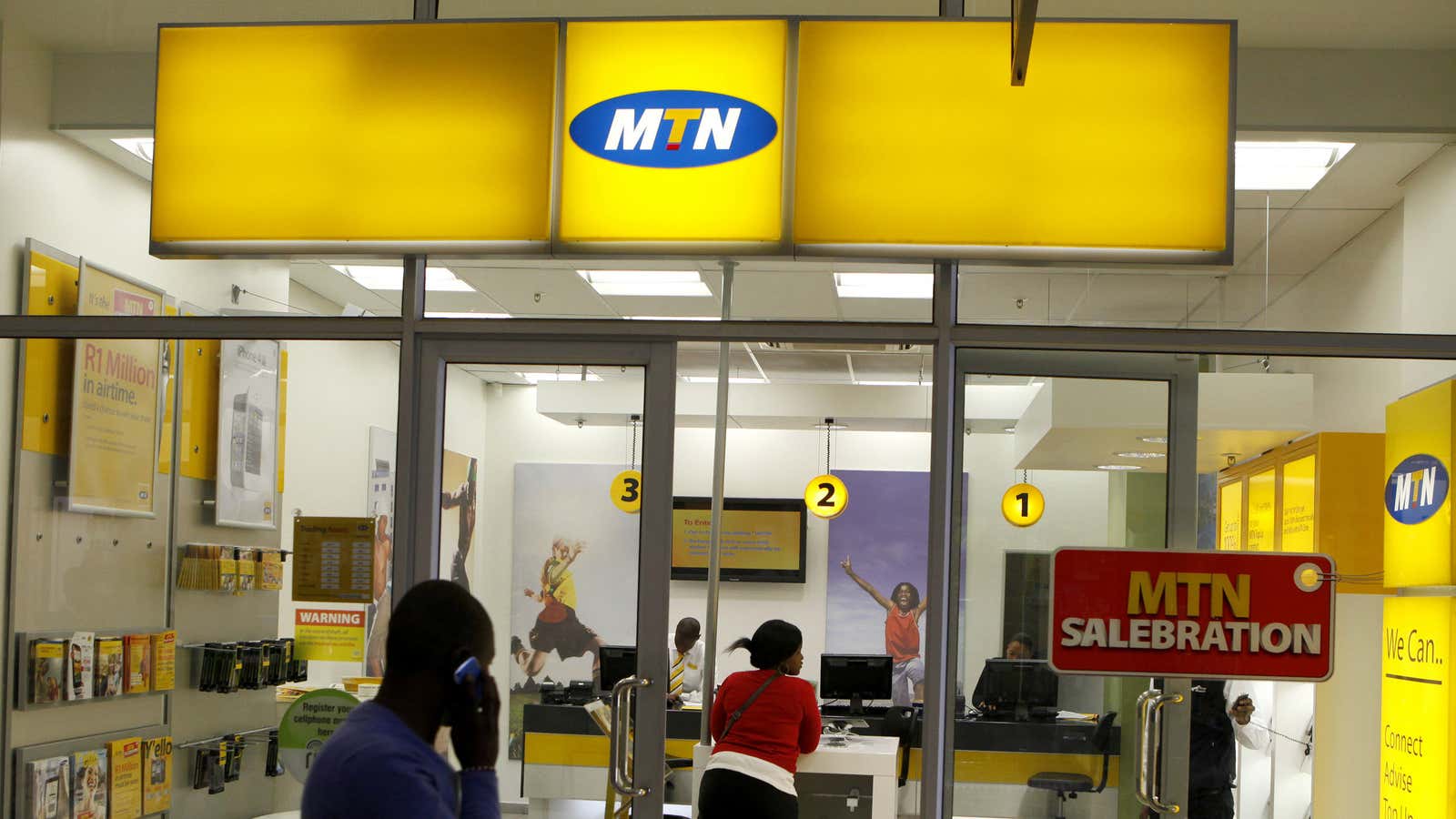Making phone calls, surfing the web and watching TV in Nigeria could be about to become more expensive.
With national revenues shrinking due to the global crash in oil prices over the last couple of years, Nigeria has been forced to consider how to diversify its revenue sources. In a search for a new pot of gold, the government appears to have settled on squeezing its communications industry as lawmakers are discussing a bill to tax communications services, including phone calls, texts, internet data and cable television. Nigeria’s telecoms sector alone is responsible around 8% of GDP.
It’s not the first time the Nigerian government has been accused of leaning on its vibrant telecoms industry for new revenue. Late last year it fined Africa’s largest mobile operator, MTN, $5.1 billion for SIM card irregularities. Both sides settled in June for $1.7 billion.
If passed, the bill will impose a communications service tax (CST) of 9% on those services. To enforce the tax, the bill proposes that telecoms regulators and the federal tax agency be provided with access to network and billing records of service providers in the communications industry. Non-compliant service providers will face fines and a possible revocation of their licenses.
While the bill claims the taxes will be charged to service providers, end users are likely to bear the brunt with the costs passed down to them. In that vein, higher data costs could be particularly damaging to Nigeria’s growing internet penetration. Data prices, which have only just started to drop, are likely to increase once again and higher costs of internet access will inadvertently slow Nigeria’s internet usage growth and broadband penetration. Research suggests Nigeria should be looking to do the reverse: World Bank estimates that a “10 percentage point increase in fixed broadband penetration” can result in a 1.38% growth in GDP (pdf, page 5).
Levying service providers with more tax is also a curious move at a time when Nigeria is looking to woo investors by convincing them with business-friendly policies. At the US-Africa Business Forum in New York yesterday (Sept. 21), president Buhari said a newly constituted ‘Presidential Enabling Business Environment Council’ is “working on a wide range of business environment reforms.” But instead, service providers claim policies like the communications tax will hurt, not improve, businesses.
For its part, the government says the CST can help generate an additional $760 million in revenue annually. In a bid to ward off criticism that the bill is a desperate and blatant revenue generation drive, Adebayo Shittu, Nigeria’s minister of communication, claims earnings from the tax will be used to improve infrastructure deficiencies in the the industry.
But amid Nigeria’s first recession in decades, low-income Nigerians are likely to be most affected. Ojobo Atuluku, country director of advocacy group, ActionAid says if passed, the bill and increased strain on low income Nigerians will be “akin to punishing the poor for the sins of the rich.“
